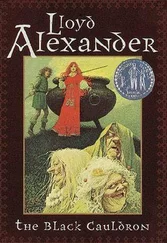The evening was cool, so my uncle stoked the fire. Aunt Reina served a beef stew and bread, and we enjoyed a glass of red wine. The stew was light on meat and vegetables, more broth than anything, but it tasted good. I was hungry from the trip. The meal was heartier than the vegetable dishes my mother cooked these days. Eggs and meat were scarce all over Germany, especially in the cities.
We talked about my parents and our relatives. We spoke briefly of the war, a topic for which Willy and Reina had only smiles. Like my mother, they were convinced we were winning and Germany would be victorious over our enemies, particularly the Jews. My life had been so sheltered, with people of my own kind, my own few friends, that I had never thought much about the Jews. They were not part of my life. We had no friends, no neighbors, who were Jewish. No one we knew had “disappeared.”
Uncle Willy said the right to our Lebensraum was as indelible as our heritage. When the Jews and the Bolsheviks were removed, the land would be Germany’s to populate. The East would produce the food, the minerals and the raw materials the Reich needed for its thousand-year reign. His face beamed as he talked.
Aunt Reina surveyed her perfectly laid table like a queen. “This crystal came from my home in Spain.” She tapped the side of the glass with her nails. “When it’s safe to travel, I will take you to my birthplace; it’s such a beautiful country. The Allies are doing their best to flood us with propaganda. Despite that, we know the Führer cannot be wrong.” She glanced at the portrait over the fireplace and smiled. “We will be victorious. Our men will fight until the final battle is won.”
I nodded, having no taste for the topic, because I was an ordinary German girl with little of the sophistication of my aunt. She was unlike any woman I had ever met—more opinionated than my mother, and with a soul of tempered steel. Nothing I could say or do could influence my aunt’s and uncle’s thinking or the outcome of the war. Even my few girlfriends were more concerned with their jobs, making money and getting along. We hardly ever talked of the war except to note, with longing, the misfortune of boys being shipped off to battle.
After my aunt and I cleared the dishes, we sat up for another hour in the living room until Uncle Willy nodded off. Reina declared the evening at an end when my uncle began snoring. I carried my bag to my second-floor bedroom, which looked out over the street. The third floor housed the attic, a room my aunt used for storage.
The town lamps were out, but a few muted window lights shone underneath the blackout shades. Past the buildings a mixture of dark and light fell on the terrain. The mountains displayed varying tones of black: the rock dun and dense, the forest lighter in its darkness. The clouds swirled overhead and sometimes a shaft of light shot through them like a luminous arrow. I couldn’t tell if it came from the ground or the heavens, but it momentarily lit the clouds as if an electric torch had been placed inside them. I stood at the window and found it hard to pull myself away from the view. Magic and myth filled the air in the Obersalzberg. No wonder Hitler had decided to construct his castle on the mountain above Berchtesgaden, his Berghof.
I unpacked a few things and then sat on the bed. As much as I admired the beauty of Berchtesgaden, I was a stranger in my aunt and uncle’s house. I went to bed thinking of my comfortable room in Berlin and my parents. They would be in bed now, the shades down, the lamps out. Frau Horst would still be awake, smoking a cigarette and sipping her cognac. She never went to bed without having a drink.
The silence in my room was eerie. In Berlin, particularly before the war, when the wind was right, I heard trains and their lonely whistles. I always wondered where they were going, but I was content to stay in my bed, rather than dream about travel. Cars rumbled by, horns blared, at all hours. The city hummed. I would have to get used to the quiet. Quite unexpectedly, I missed my tree-lined street and the hellos and small talk from our neighbors.
* * *
By the next morning, all pleasantries with my aunt had dissipated.
“You must get a job if you want to live here,” Reina told me in a voice filled with the heaviness of iron. The comforts of the previous evening evaporated as she served me a bowl of porridge with a little goat’s milk. There was no butter on the table and I didn’t dare ask. “We can’t afford to feed another mouth, and your parents aren’t in a position to send money. You must work or find a husband. The Reich needs strong male babies for future service.”
I was shocked by her demands, but they weren’t entirely unexpected. “What would you have me do?” I said. “I can’t walk the streets looking for a man.”
Creases formed around Reina’s mouth. “I am not suggesting you be a whore,” she said matter-of-factly. “Wanton women damage the Reich and pervert our soldiers. A man’s seed should be saved for children. You must find a job—something you can do, or have talent in. Do you have any talent?”
I thought hard before answering. I’d never had to do much around my parents’ house except clean and mend. Sometimes I cooked, but rarely. My mother commanded the kitchen. “I can sew,” I finally replied.
“Not enough money. And work here would be scarce. All Berchtesgaden women know how to sew, probably much better than you.”
My aunt’s lack of confidence in me stung. However, her tactic was succeeding. I sank into my chair and questioned my own lack of initiative. My parents had never forced me to work and I assumed that the small jobs I did around the house paid for my keep. Perhaps I was wrong.
“What good are you to the Reich?” My aunt placed her hands on her hips and stared at me. “Every citizen must be productive. You should be ashamed and so should your parents for raising such a worthless girl. Perhaps it would have been better if you’d stayed in Berlin. Your father is such a worrywart.” She shook a finger at me.
Whatever fondness I held for my aunt was rapidly diminishing. We had spent little time together and the prospect of more than a few days portended disaster.
“I will look for work after breakfast,” I said.
My aunt’s eyes brightened. “That’s a good girl. There must be something you can do.”
I was not convinced.
I helped my aunt with the dishes, then took a bath and unpacked the remainder of my things, although I felt no certainty about staying. Wanting to look smart, I picked out my best dress. I hadn’t applied for a job in several years and felt woefully unprepared. My aunt presented me with a writing pad and pen, both covered in swastikas.
The clouds had cleared overnight and the sun’s rays bore down in full spring strength; still it was cool enough to wear a jacket. The mountain air and dazzling light quickened my step after the unpleasant conversation with my aunt. I looked to my right and was thrilled to see the Watzmann, whose beautiful serrated peaks loomed over the valley like shark’s teeth protruding from the earth. The white snows of winter still clung to the heights of its rocky face. Everywhere I looked there were forest and mountains. Berchtesgaden was so different from Berlin, where everyone felt on edge.
I wandered down the street, past shops with empty windows. Many were shuttered or boarded up completely. I even stopped to read a local broadsheet for employment news, but no jobs were listed. How did my aunt expect me to get a position with so many shops out of business or selling only rationed goods and services? No window signs seeking job hunters were visible, except for the butcher’s next to my aunt and uncle’s. A few measly bird carcasses hung on hooks behind the counter. The butcher wanted a helper with strong shoulders, to help clean and lift. I couldn’t see myself gutting birds or cleaning up bloody messes. Besides, it only made sense that the shop owner would want a man who could haul heavy slabs of beef, as scarce as they might be.
Читать дальше












